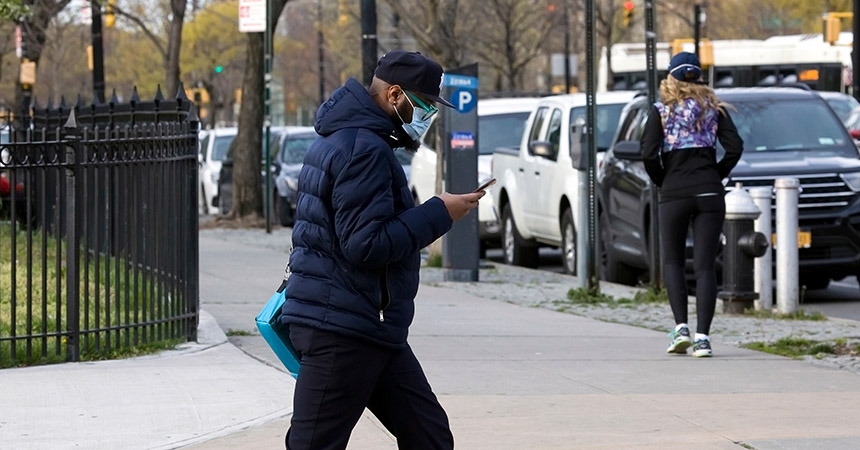COVID-19 shines light on inequities impacting health in the African American community
Even though states and cities are now reopening, the threat of COVID-19 still looms large for especially vulnerable groups across the U.S. that have been hardest hit during the pandemic.
African Americans represent 13% of the country’s population, according to U.S. Census data, yet these communities account for more than half of all COVID-19 cases and almost 60% of related deaths so far.
“The pandemic has underscored the dire consequences of the health disparities that persist in African American communities,” said Erica C. Spears, PhD, MA, a health disparities researcher and HSC Assistant Professor of Health Behavior and Health Systems.
“During this crisis, there’s a spotlight on some of the ways structural inequalities negatively impact health,” Dr. Spears said. “You can’t have a healthy community if part of it is marginalized. It’s time to consider the bigger picture and recognize that we are all part of the same community.”
Many factors impact health, including education; employment; income/financial security; housing, safety and other social and environmental issues; lifestyle behaviors; family genetics; and access to healthcare.
Data shows that as a group, the African American or Black population experiences significant disparities related to chronic conditions, access to care, preventive screenings and mental health.
Dr. Spears grew up in New Orleans, a city that is roughly 60% African American and at one point was considered a COVID-19 hotspot. A number of chronic health conditions plague the city’s residents at disproportionate rates, conditions that are also listed as underlying factors in many of the COVID-19 deaths the city has suffered.
“As with so many communities around the U.S., there are food deserts where people don’t have access to grocery stores, fresh foods or healthy options,” she said. “If you have diabetes, which is very much related to what you eat, but there are limited healthy food options in your area, how can you improve your condition? … When you don’t feel safe walking in your neighborhood, how does that affect how you exercise?”
With COVID-19, sources like the CDC say, disparities like these go a long way in making African Americans more vulnerable to serious health implications, even death.
“It’s not that more African Americans have become infected with the virus, it’s that the underlying health conditions – like diabetes, asthma, hypertension, obesity and others – where the African American community is already disproportionately represented make the consequences of contracting COVID-19 potentially more severe,” Dr. Spears said.
Health disparities, she noted, are complicated and go back through generations of stress, unequal opportunities and options, and other socioeconomic factors that manifest in worsened health outcomes.
“Our immune system is a function of the communities we grew up in and where and how we live now, the environments we are a part of every day,” Dr. Spears said. “Genetics and our early-life exposures have a profound impact on health, as do the stressors in your life, such as whether you have access to good food, transportation, child care, a safe place to live, financial security, healthcare or even the ability to take time off work when you’re sick. It all adds up.”
Most Americans have never been through something like COVID-19, so it’s challenging for everyone right now, she said, especially as communities continue testing the waters for a safe return to everyday life.
“For all of us, maybe it will be a time of reflection. To ask ourselves, what parts of public health’s greatest challenges can I do something about,” Dr. Spears said, “to help promote a healthier place in my own community, in the country and in the world.”
“It might be working on research and advocacy, supporting your community in some other way, or perhaps just being a little nicer to the cashier at your local store or the person who delivers your packages. Amid the many crises created by COVID-19, we also have an opportunity to learn and grow as a society … we have a chance to show how we care for each other through our actions, and to hopefully grow stronger as a collective.”





Social media